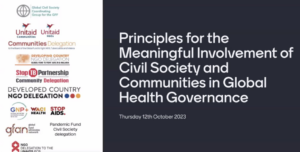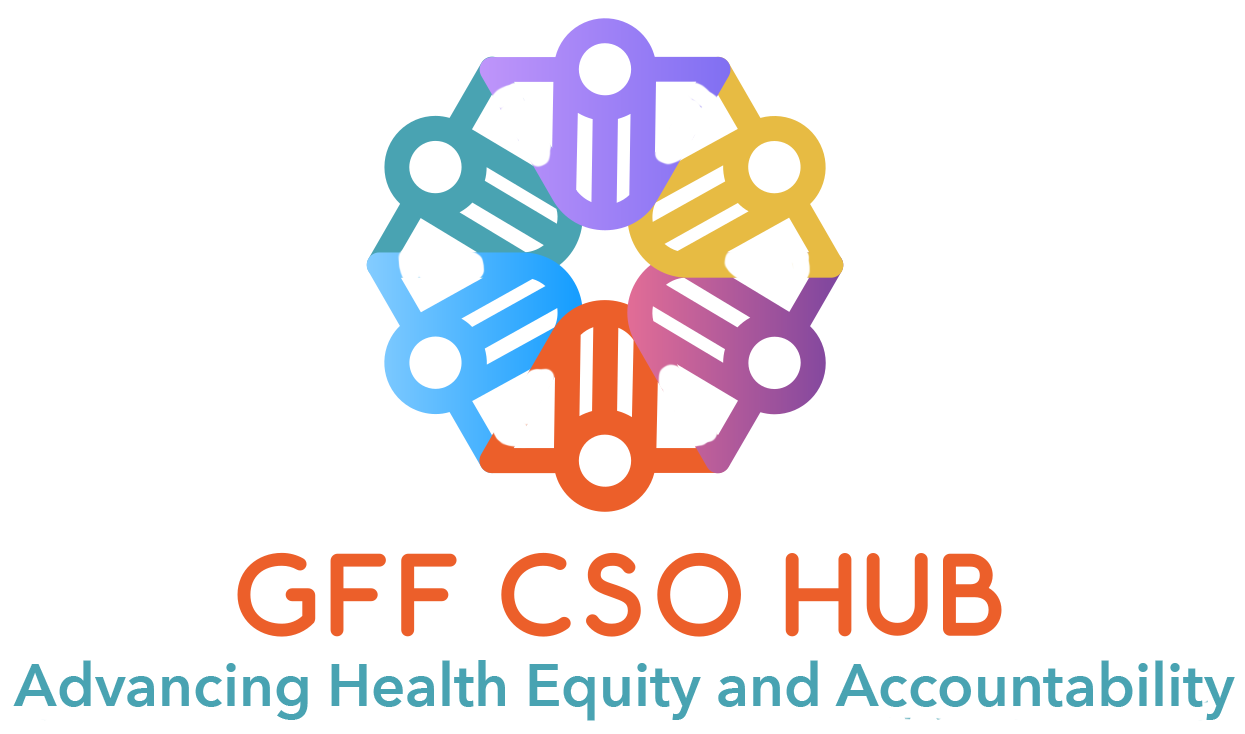
On October 12, 2023, the Global Civil Society Coordinating Group for the GFF (CSCG), represented by Civil Society IG Representatives Myria Koutsoumpa and Jackie Katana, officially launched and adopted a set of governance principles for civil society engagement in Global Health Governance. These principles, accessible at www.governance-principles.org, are open for endorsement by individual organizations and networks through a feedback form. They serve as a crucial framework for assessing Global Health Initiatives (GHIs), including major players like the Global Fund to Fight AIDS, Tuberculosis, and Malaria, the Global Financing Facility, and Gavi, The Vaccine Alliance, collectively known as the 3Gs. These initiatives mark a significant step towards achieving better collaboration and alignment for the benefit of global health.
Collaboration among these GHIs is vital, especially in the context of strengthening health systems in low-income countries, as underscored by the challenges posed by the COVID-19 pandemic. Various mechanisms, such as the WHO’s Global Action Plan, aim to enhance coordination among these initiatives and align them with country priorities. 5 Principles for the Meaningful Involvement of Communities and Civil Society in Global Health Governance have been developed, to support and strengthen GHIS’ relationships with communities and civil society, focusing on multi-stakeholder partnerships with existing civil society and community involvement mechanisms.
To address the practical effectiveness of these collaborations, CSCG Member Wemos together with Cordaid and N’weti published a policy brief comparing the strategies of the 3Gs in the Democratic Republic of Congo, Mozambique, and Rwanda. This publication was followed by a webinar to share lessons and recommendations on tools for improving health programs and overall health system efficiency.
